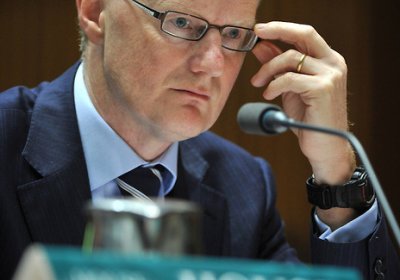After Cyclone Pam caused widespread destruction on Vanuatu, a South Pacific archipelago, on March 14, Prime Minister Baldwin Lonsdale said the devastating cyclones increasingly hitting his nation were directly linked to climate change.
1045
US bars UN torture investigator from jails and Guantanamo
The United Nations special investigator on the use of torture criticised the US on March 11 for stalling for over two years in granting the international human rights body access to inmates at Guantanamo Bay and other federal US prisons.
Student activists dropped a huge banner from Sydney University’s Fisher Library which read "No cuts, no fees, no dereg. Fightback now!" to raise the alarm about the federal government’s looming attempt to deregulate university fees.
Six students also locked themselves to the Vice-Chancellor's office, to demonstrate their opposition, and called on all university Vice-Chancellors to oppose the bill.
I take issue with Ben Courtice’s and Emma Murphy’s criticism of my review of Bill Gammage’s book, The Biggest Estate on Earth: How Aborigines Made Australia in the January 28 Green Left Weekly.
I have two major arguments with their criticism. First, Gammage has made a major contribution to our understanding of how Aboriginal Australians cared for the land for more than 60,000 years right across the continent.
The following statement was released by Aid/Watch, an independent monitor of international aid and trade, on March 5.
* * *
Australia spends $577 million a year on aid for Papua New Guinea (PNG). Two key focus areas are anti-corruption related — law and justice, and governance.
PNG has concurrently undertaken a number of national processes to combat corruption without Australian support.
Experience proves that left-wing movements can win government, but nevertheless not hold power. Democracy, in other words the exercise of power by the people and for the people, requires much more.
The problem is now being faced in Greece with with radical left party SYRIZA, which won elections in January. It will have to be faced in Spain if the new anti-austerity party Podemos wins November elections.
A couple of weeks ago I was campaigning with Green Left Weekly at our regular Friday afternoon Central station tunnel spot. It’s a pretty frenetic spot as hundreds of people bustle past every minute, eager to catch their trains and get home or out for the night.
Australian groups have condemned the decision of US President Barack Obama to issue an executive order on March 9 declaring Venezuela “a national security emergency” and imposing sanctions on Venezuelan officials.
Australia-Venezuela Solidarity Network co-convenor Roberto Jorquera said: “We are extremely concerned at this latest escalation in US attacks on the sovereign nation of Venezuela. We share the concern of the Venezuelan government and many others that this could be a prelude to an economic blockade or even military attack.
Western Sahara is recognised by the United Nations as the last non-self-governing territory in Africa. Between 1973 and 1991 it was at war, as the pro-independence Polisario Front fought first against colonial rulers Spain, and after 1975, against Morocco, which invaded with Spanish encouragement.
Near the heartland of New Zealand’s renowned wine country, there is a place where visitors are not allowed to go. The peculiar large white domes that protrude from the earth in the Waihopai Valley are surrounded by razor wire and shrouded in secrecy.
Grrl Fest is an independent multi-platform music and arts event, celebrating and empowering women-identified artists. This year, the Melbourne event will be celebrating its third year.
Grrl Fest will be held on March 21 at the Northcote Town Hall.
There will be an outdoor venue, markets, music, workshops, cocktails and cabaret. The venue is a change up from the dusty warehouse beginnings of Grrl Fest.
This month two reports were released in Canberra.
The first was an important analysis of economic data, the 2014 national accounts issued by the Australian Bureau of Statistics.
What Australia’s national accounts show is an economy in deep trouble. As David Harvey reminds us, to function satisfactorily it is necessary for capitalist economies to achieve a minimum 3% compound growth forever.
- Page 1
- Next page









